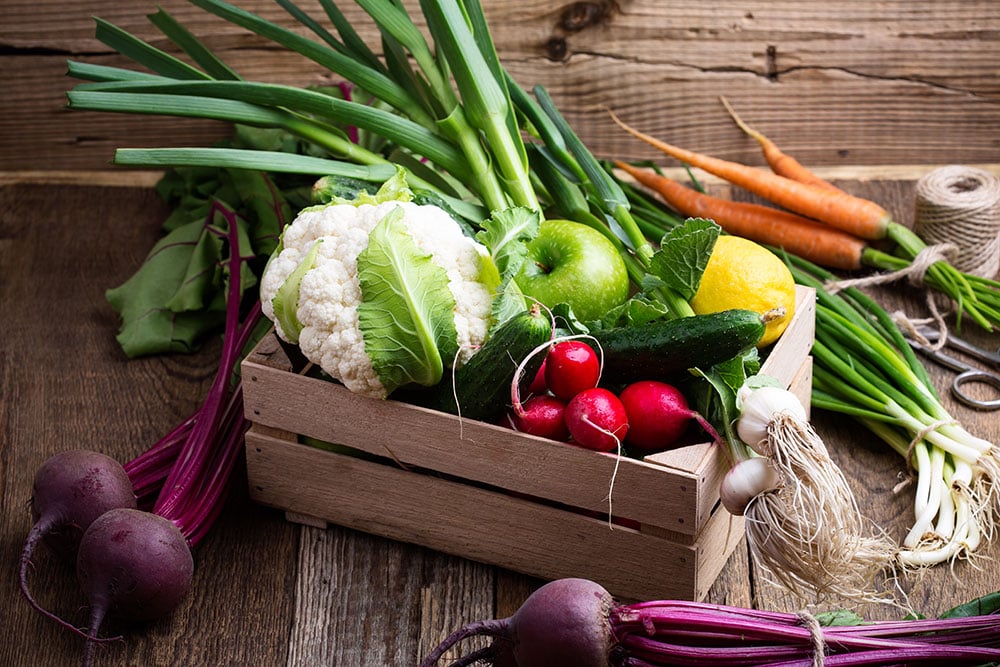Now is the time to sign up for a CSA (consumer supported agriculture) to receive a share of the farm’s harvest
CSAs have gained popularity over the years with more and more people enjoying fresh farm-raised fruits, vegetables, meat, dairy, grains, honey, eggs and more.
Customers pay for “shares” and receive a percentage of the products harvested from local farms. Shares are available from farms and farm cooperatives throughout Western PA.
How Does a CSA Work?
Customers pick a designated site such as a home, business or church for pickup. Farms have responded by also offering a variety of options:
- Weekly, bi-weekly or monthly shares
- Small and large shares
- Organic or certified naturally grown
- Dietary concerns such as vegan or gluten-free shares
- Customized orders
- Paying weekly or as you go
Tips for Buying a CSA Share
- Share! Share a “share” with a friend or family member.
- Drop! Pick a drop site convenient to your home or work.
- Cook! Use fresh ingredients each week to make meals at home.
- Farms may add a site if there is a minimum of 10-15 customers.
- Many CSAs provide recipes that incorporate a week’s harvest.
- CSAs are not always produce-based.
- Some have meat, cheese, eggs, flowers, and other products made from farmed produce or livestock. Other CSAs work cooperatively with each other to supply their shareholders’ needs. This might mean that a CSA provides produce, meat, eggs, and flowers while other products are brought in through other farmers
How to make the most of your CSA
We are lucky to live in a place that can provide nutritious, locally-grown food. Buying farm-fresh products and preparing them at home is a healthy alternative to eating preservatives.
The key to eating locally is to make a commitment to eat seasonally. Eat greens, asparagus, and berries in spring. You can then progress to tomatoes, corn, zucchini, and melons throughout the summer. Move on to autumn crops, such as potatoes, more greens, and squash in the fall. Summer is the time to preserve the harvest. A simple internet search will provide direction and know-how for canning, fermenting, drying and freezing your favorite summer produce. Buy a few extra quarts of blueberries each week and freeze them. You will be rewarded in mid-winter when you’re mixing your local food smoothies.
The farm stands and stores, farmers’ markets and retail stores that sell these local products are located throughout Allegheny County. Farmers’ markets typically run once a week for about four hours at a time.
Ask your favorite restaurant if they buy from local farms. If you notice specials that contain seasonal ingredients, they are most likely getting these from a local producer.
Lastly, start a garden and grow your own food! The easiest plants and some of the most delicious are tomatoes and basil. You will be rewarded with the freshest tasting ingredients.
Read more at Table Magazine: How to Bring Pittsburgh-Area Farms to Your Home


